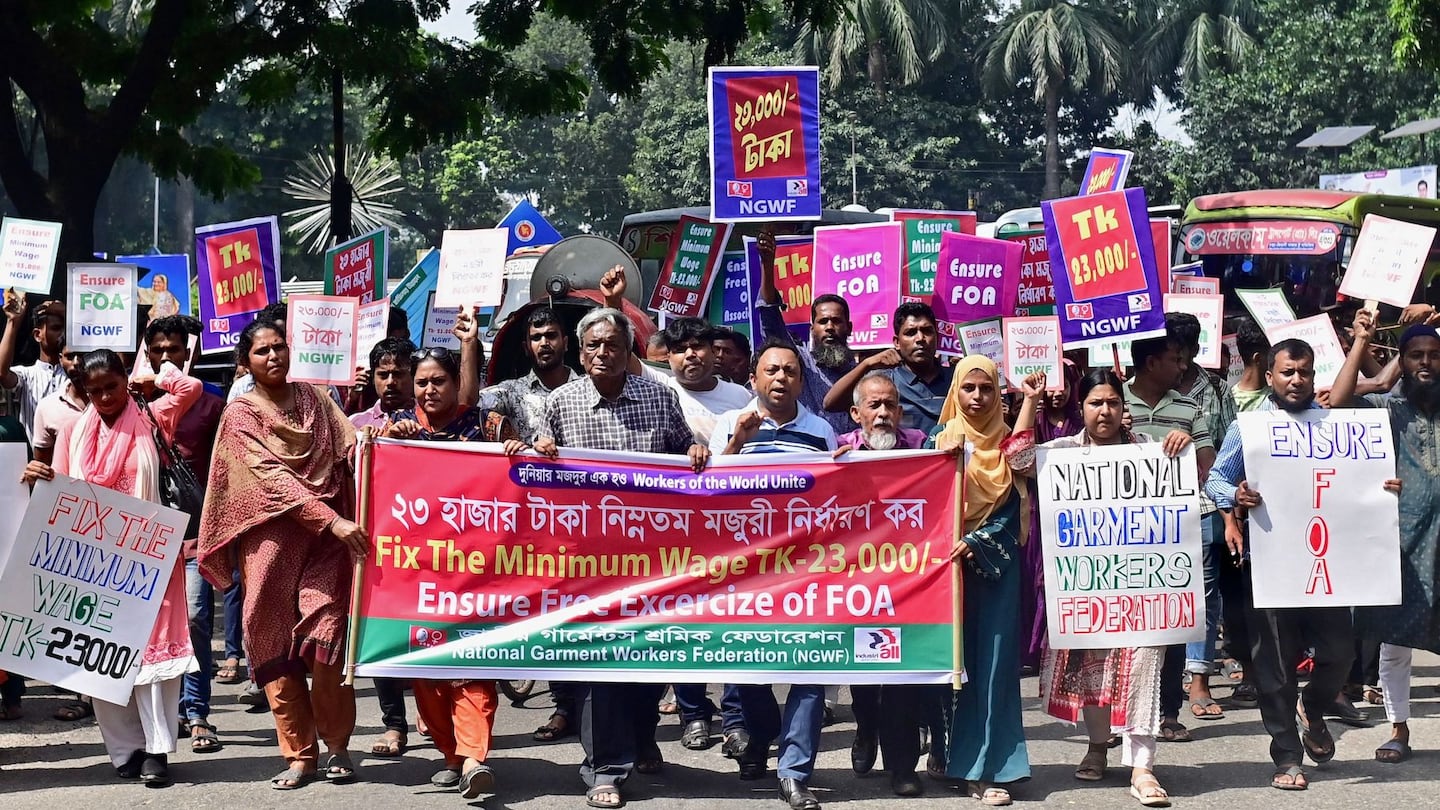
The Business of Fashion
Agenda-setting intelligence, analysis and advice for the global fashion community.

Agenda-setting intelligence, analysis and advice for the global fashion community.

Bangladesh will raise the minimum wage for garment workers by 56.25 percent, the first hike since 2019, the junior labour minister said on Tuesday after a week of protests calling for higher salaries.
The minimum wage for workers will rise to 12,500 taka ($114) per month from Dec. 1, State Minister for Labour and Employment Monnujan Sufian said.
The protests, which led to clashes with police that killed two workers and wounded dozens more, pushed the government to form a panel of factory owners, union leaders and officials to consider the demand for higher pay.
“We are announcing the minimum wage for garment workers as per Prime Minister Sheikh Hasina’s directive,” Sufian told reporters after a meeting with the panel.
ADVERTISEMENT
“There will be an annual increment of 5 percent for them and the pay structure has been reduced from 7 to 5,” she said.
Low wages and trade deals with Western countries have made the sector a $40 billion industry accounting for 80 percent of Bangladesh’s exports. It is the world’s second-biggest garment exporter behind China.
All parties involved agreed to the rise, said Siddiqur Rahman, the owners’ representative on the wage board.
“Primarily family cards will be given to the workers, later the ration cards will be given to them so they can buy essential commodities at cheaper rates,” Rahman, also a former president of the Bangladesh Garment Manufacturers and Exporters Association, told Reuters.
By Ruma Paul and Shilpa Jamkhandikar
Learn more:
Bangladesh Wage Protests Turn Deadly
Police have clashed with thousands of garment workers demanding higher wages in protests that have left factories damaged and at least two dead, according to media reports.
The sector’s planet-warming emissions inched lower in 2022 thanks to revised data, but they’re still on track to grow by more than 40 percent by 2030, according to a new report.
Textile-to-textile recycling technologies could be a climate game changer for fashion’s environmental footprint. But like renewable energy, they need state support for market efforts to scale, argues Nicole Rycroft.
More than a year after the ultra-fast-fashion company said it would tackle issues of unlawful overtime, 75-hour weeks remain common in its supply chain, Swiss watchdog Public Eye found.
A study published this week found traces of cotton from Xinjiang in nearly a fifth of the products it examined, highlighting the challenges brands face in policing their supply chains even as requirements to do so spread to raw materials from diamonds to leather and palm oil.